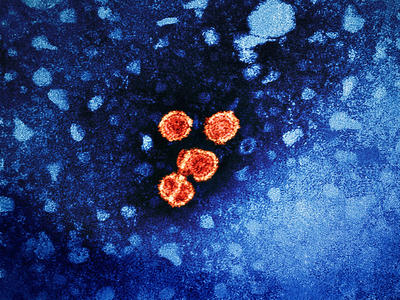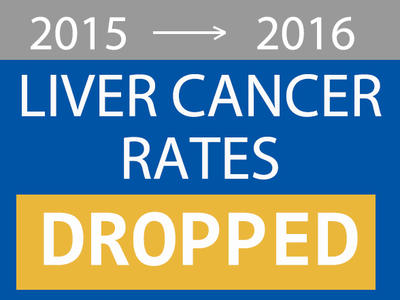Liver
DCEG researchers conduct studies on cancers of the liver, including hepatocellular carcinoma.
Studies include
-
Interferon Lambda 4 (IFNL4) Phenotypes and Risk of Precancer and Cancer
IFNL4 genotype, including studies of: hepatic inflammation and fibrosis, which are precursors of hepatocellular carcinoma; mucinous ovarian carcinoma; opportunistic infections and malignancies; and neuroinvasive West Nile virus infection. MD: Investigations examining the phenotypic range of IFNL4 genotype, including studies of: hepatic inflammation and fibrosis, which are precursors of hepatocellular carcinoma; mucinous ovarian carcinoma; opportunistic infections and malignancies; and neuroinvasive West Nile virus infection.
-
Liver Cancer Pooling Project
A liver cancer pooling project among existing U.S. cohorts in order to explore liver cancer etiology in a prospective manner
-
Liver Cancer Research in the Metabolic Epidemiology Branch
Learn about the research of investigators in the Metabolic Epidemiology Branch on a variety of risk factors for liver cancer, utilizing numerous study populations.
-
The North American Liver Cancer Study
The North American Liver Cancer Study is a case-control study, in collaboration with the Institute of Nutrition of Central America and Panama, headquartered in Guatemala City, which seeks to increase our understanding of liver cancer risk factors.
Research News
-

Risk of Liver Cancer Declines for People with HIV, But Rates Remains Elevated
Using data from the HIV/AIDS Cancer Match Study, Dr. Jennifer McGee-Avila and colleagues determined that for people with HIV, the risk of liver cancer has declined in recent years, but the rate of liver cancer compared to the general population remains elevated.
-

Decline in U.S. Hepatocellular Carcinoma Rates
Overall U.S. hepatocellular carcinoma (HCC) incidence rates plateaued in 2013 and dropped 4% in 2016 according to findings published in Gastroenterology on January 19, 2020.